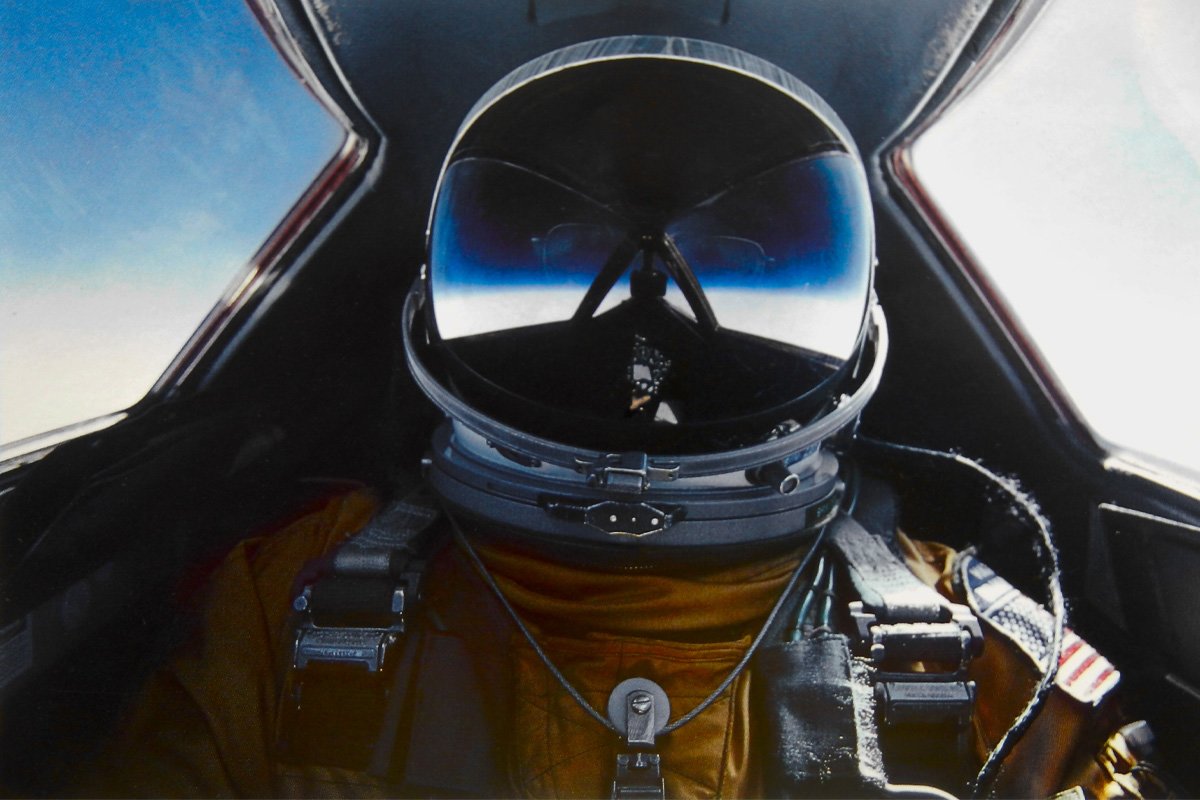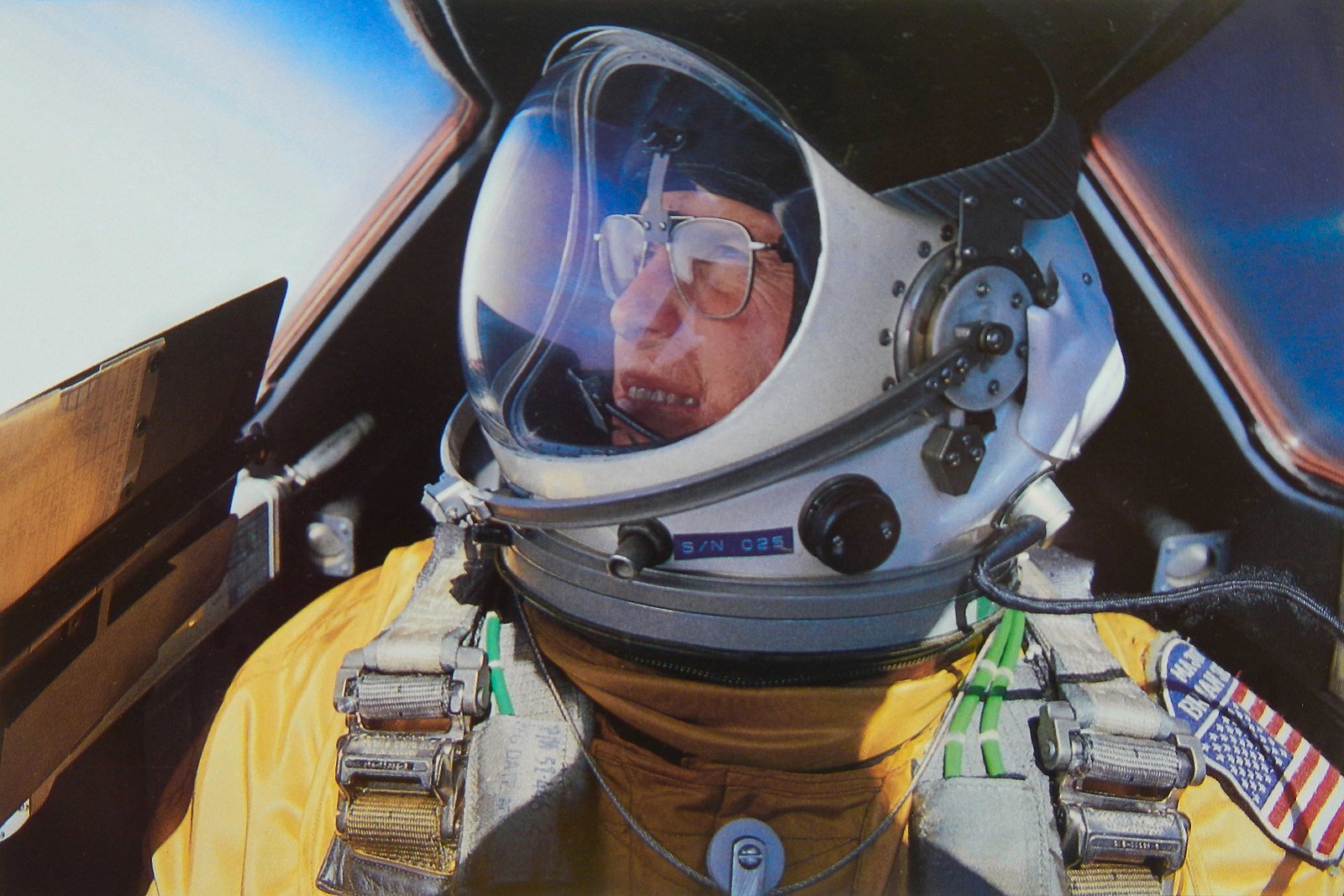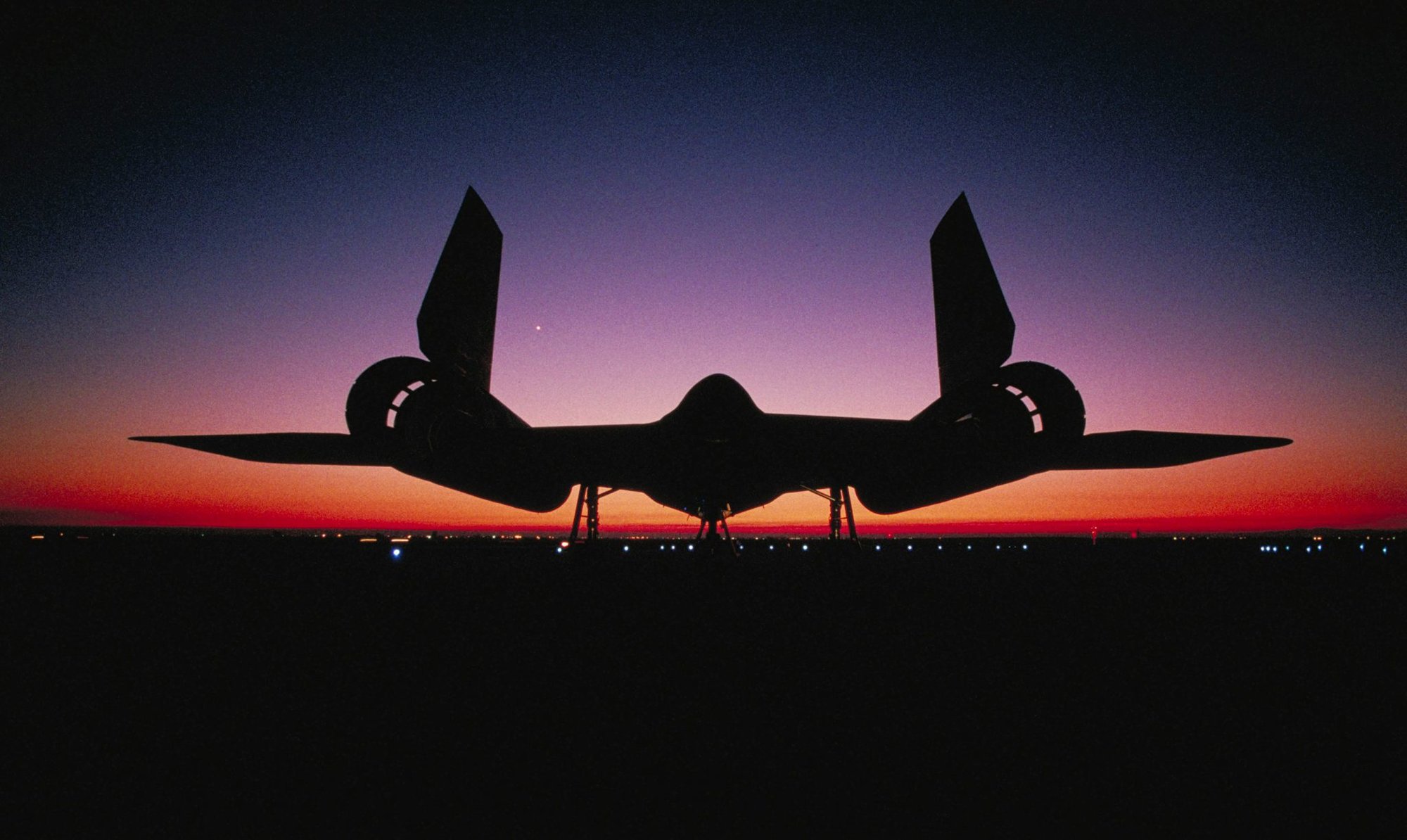Nearly Killed in Vietnam, Brian Shul Triumphed To Become SR-71 Pilot

SR-71 Blackbird pilot Brian Shul reached Mach 3.5 while evading surface-to-air missiles over Libya in 1986. Wikimedia Commons photo.
On April 11, 1974, Lt. Brian Shul was shot down over enemy territory while flying an AT-28D Trojan as part of a covert mission along the Cambodian border. Unable to eject, Shul, a US Air Force pilot serving as an adviser with the CIA’s clandestine Air America program, had to crash-land into the jungle.
“[I was] completely blind, as my helmet visor had melted,” Shul later recalled. “I did everything by feel.”
Shul managed to extract himself from the aircraft. Then he lay down in the underbrush and waited for American commandos to come to his rescue. A rescue helicopter eventually arrived but couldn’t land in the dense vegetation. Instead, it hovered several feet above the ground while the rescue team pulled Shul from the brush and hoisted him into the helicopter.

Shul was flown first to a hospital in Thailand. The doctors who treated him predicted that he would die en route to the intensive-care burn unit in Okinawa. And yet, he survived — barely. After nearly two months in intensive care, he weighed about 60 pounds less than he had on the day he was shot down.
From Okinawa, Shul was flown to Brooke Army Medical Center in San Antonio. There, the doctors made another grim prognosis, telling Shul that he would never fly again.
During the year he spent at BAMC, Shul underwent 15 surgeries and endured intense physical therapy. All the while, he remained determined to return to active flight status — so determined, in fact, that he once ripped up his discharge papers in front of the Air Force’s chief flight surgeon. His determination paid off. Two days after being released from the hospital, Shul took to the skies in a jet fighter and checked the necessary boxes to retain his pilot qualifications.
Back in the cockpit, Shul continued to build upon his remarkable career. In 1977, he was recruited into the first-ever operational A-10 squadron. He also became an instructor for the now-iconic TOPGUN flight school.

For his final assignment, Shul was tapped to become a so-called “Sled Driver,” the nickname for the pilots of the world’s fastest spy plane: the SR-71 Blackbird. In that capacity, he returned to combat in 1986, flying battle damage assessment missions over Libya. President Ronald Reagan had ordered bombing missions against military targets within the country, and it was up to Shul to gather photographic evidence of the damage. Moammar Gadhafi had established the “line of death” across the Gulf of Sidra and vowed to shoot down any intruder who tried to enter.
“On the morning of April 15, I rocketed past the line at 2,125 mph,” Shul wrote for a website dedicated to preserving the history of the SR-71 Blackbird, adding that surface-to-air missiles had targeted his aircraft. “The plane was flying a mile every 1.6 seconds, well above our Mach 3.2 limit.”
Shul reached Mach 3.5 and successfully outran the missiles to return to base. The photographs above show Shul in the cockpit of the SR-71 Blackbird, the same plane he piloted during the Libyan missions.
Shul retired from the Air Force in 1990. During his 20 years of service, he piloted 12 different military aircraft, clocked more than 5,000 hours of flight time, completed hundreds of combat missions, and achieved the satisfaction of ending his military career on his own terms.
Read Next: How an SR-71 Blackbird Engineer Helped 3rd Graders With a School Project

Matt Fratus is a history staff writer for Coffee or Die. He prides himself on uncovering the most fascinating tales of history by sharing them through any means of engaging storytelling. He writes for his micro-blog @LateNightHistory on Instagram, where he shares the story behind the image. He is also the host of the Late Night History podcast. When not writing about history, Matt enjoys volunteering for One More Wave and rooting for Boston sports teams.
BRCC and Bad Moon Print Press team up for an exclusive, limited-edition T-shirt design!
BRCC partners with Team Room Design for an exclusive T-shirt release!
Thirty Seconds Out has partnered with BRCC for an exclusive shirt design invoking the God of Winter.
Lucas O'Hara of Grizzly Forge has teamed up with BRCC for a badass, exclusive Shirt Club T-shirt design featuring his most popular knife and tiomahawk.
Coffee or Die sits down with one of the graphic designers behind Black Rifle Coffee's signature look and vibe.
Biden will award the Medal of Honor to a Vietnam War Army helicopter pilot who risked his life to save a reconnaissance team from almost certain death.
Ever wonder how much Jack Mandaville would f*ck sh*t up if he went back in time? The American Revolution didn't even see him coming.
A nearly 200-year-old West Point time capsule that at first appeared to yield little more than dust contains hidden treasure, the US Military Academy said.












